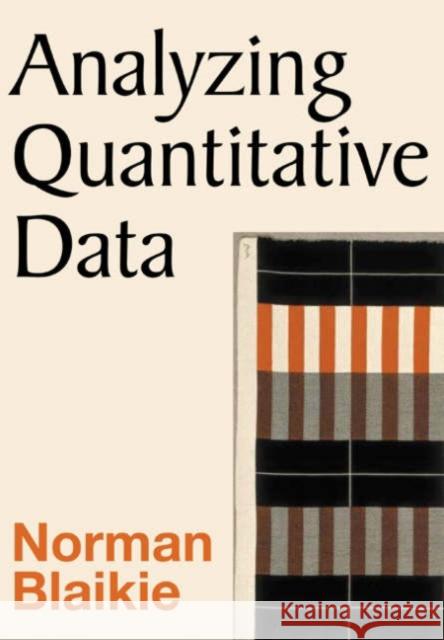Analyzing Quantitative Data: From Description to Explanation » książka
Analyzing Quantitative Data: From Description to Explanation
ISBN-13: 9780761967583 / Angielski / Twarda / 2000 / 352 str.
Analyzing Quantitative Data: From Description to Explanation
ISBN-13: 9780761967583 / Angielski / Twarda / 2000 / 352 str.
(netto: 1154,44 VAT: 5%)
Najniższa cena z 30 dni: 1083,03
ok. 22 dni roboczych.
Darmowa dostawa!
What basic knowledge and skills do novice researchers in social science require? How can students be helped to over-come symbol phobia' or figure blindness'? This generous and constantly insightful book is designed for social researchers who need to know what procedures to use under what circumstances, in practical research projects. It accomplishes this without requiring an in-depth understanding of statistical theory, but also avoids both trivializing procedures or resorting to cookbook' techniques. Among the key features of the book are: - Accessibility- Organization of the wide, often bewildering array of methods of data analysis into a coherent and user-friendly scheme of classification: types of analysis and levels of measurement- Demystification - the first chapter unpacks commonly taken-for-granted concepts such as analysis', data' and quantitative'- Location of methods in real research problemsThe book is a triumphant introduction to the theory and practice of quantitative methods. It will quickly establish itself as essential reading for students doing social research throughout the social sciences.With this book Norman Blaikie retains his reputation as the leading rapporteur and raconteur of social research methodology. With many other introductory texts, data analysis becomes just an exercise unto itself, and students (sometimes) learn to go through the motions without really knowing why. After working with Blaikie's text, novice researchers will know why quantitative inquiry is important' - Ray Pawson, University of Leeds











